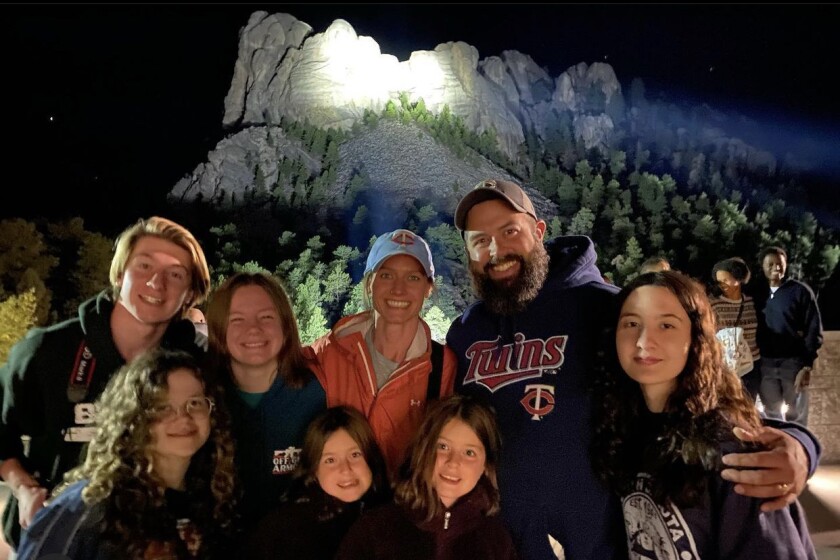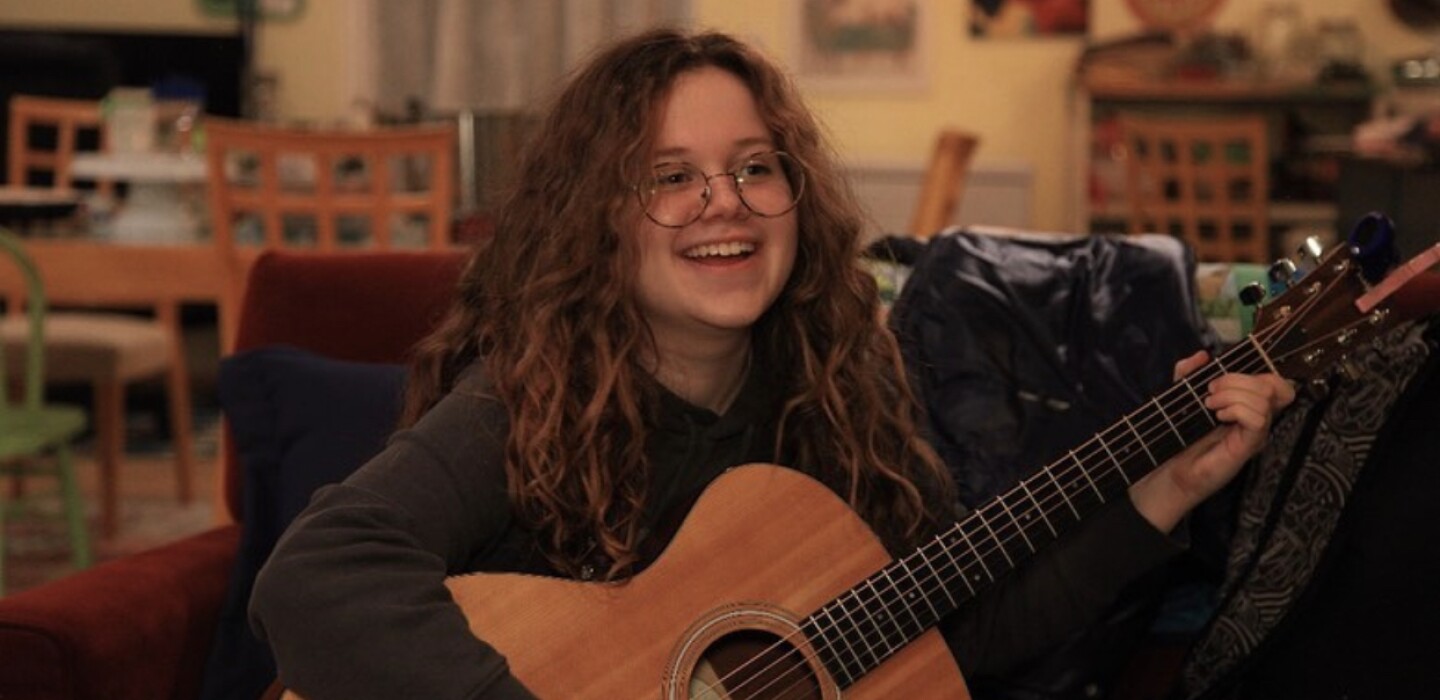HAWLEY, Minn. — For half her young life, Daniella Zubarieva has lived in a country on the brink of war.In August last year, she found re
HAWLEY, Minn. — For half her young life, Daniella Zubarieva has lived in a country on the brink of war.
In August last year, she found respite in the small town of Hawley as a foreign exchange student from Mariupol, Ukraine. On Feb. 24, the day Russia began its invasion, she had just returned from basketball practice at Hawley High School when she heard the news.
“I’ve lived in a country that has been in a state of war for eight years,” said Zubarieva, now 16, who is called Danya by her friends and host family.
“I just came back from school and I have U.S. history and civics here, and in civics we talked about the news worldwide, and how the tension between Ukraine and Russia is building up even more, then I came back home from basketball practice, quite late, took a shower, and then a friend saw that my city was being bombed,” she said.
She immediately tried to contact her family in the strategic port city of Mariupol, population 430,000, the 10th largest city in Ukraine, but at first she could not get through. Power and telephone lines were down, and the cost of an international call was too much for her to afford on a stipend of $125 a month.
So she turned to the internet and chat programs like Telegram.
“I started calling my mom, I started calling my friends, but no one was picking up,” Zubarieva said. Scared, she tuned into online news from the Ukraine to discover that five cities, including her hometown and the nation’s capital, were under bombardment.

Special to The Forum
At about 1 a.m. the following morning, she was finally able to get through to her mother. Her family was alive and had taken refuge in grandparent’s basement.
Her 7-year-old brother, Klim, sounded scared, but he still wanted to know if she had found any good toys for him. Boomer, her Yorkshire terrier, appeared stressed, but he was alive.
“I couldn’t go to school the next day; I was crying. It was pretty nerve-wracking. My mom had to move out of the apartment, and they went to my maternal grandmother’s place, who will not move anywhere,” Zubarieva said.
A week later, her hometown was “near humanitarian calamity” on Thursday, March 3, after more than 15 hours of continuous bombardment by Russian forces. Hundreds have died, according to the BBC.
As Russian forces lay siege to other cities along the Black Sea,
Ukraine’s State Emergency Service
reported that more than 2,000 civilians have been killed so far. Online social media posts show shelling of apartment buildings, hospitals and streets, and Russian soldiers looting food from grocery stores.
Zubarieva’s hometown is also key to President Vladimir Putin’s plans to establish a land corridor between Russia and other areas, as cargo that passes through the port is vital to Ukraine’s economy.
Much of Zubarieva’s news comes from Ukraine media outlets and online videos.
“Do you know what people in Ukraine are calling Putin? Putler,” she said. Putler is a portmanteau of Russian President Vladimir Putin and Adolf Hitler, the former dictator of Germany during World War II.

In Ukraine, Russians and Ukrainians have lived side by side for generations. Russian is Zubarieva’s first language, then she learned English and then Ukrainian.
“He’s killing people of his own. In USSR, people were really proud they defeated the Nazis and everyone fought together, and right now those great-grandparents would be shocked if they found out what is happening,” Zubarieva said.
“Sometimes I feel really ashamed that Russian is my mother language, because Ukrainian is much more beautiful and Russian is the language of our invaders,” she said.
When asked what she wanted to be when she is older, she replied without hesitation.
“I want to be a politician of a kind. I want to show people what they make children and women go through. Women have to give birth in bomb shelters. Hospitals are being bombed. There are videos of small children, a 6-year-old girl, they tried to give her CPR, but she died,” she said.
“As a child, I remember how everyone was friends, nobody was spreading lies about each other’s countries, and now Russia is writing propaganda,” she said. “They say ‘If you make a fake video or film a Ukrainian bomb and say it’s Ukrainians bombing Russians, then they will get $500 just for a fake video.’
“You cannot trust anything in Russia at the moment,” she said.
If Zubarieva cannot return home at the end of the school year, she has plans to apply for political asylum and then work on getting her family to safety. In the meantime, she’s trying to raise money to help her family and friends back home survive.
“The biggest thing I’m trying to do is help as much as I can by reposting what I can, and we’re going to start fundraising,” she said. With assistance from her host mother, Briana LaVine Leigh, she started a Facebook page called
Help for Mariupol, Ukraine
.

Special to The Forum
Starting March 8, she will be selling T-shirts with her artwork, pins, magnets and bracelets, and the money she raises will be sent back home to help buy food, medicine, baby formula and “even bread,” she said.
And because money most likely won’t be able to be transferred by bank, she’s found more creative ways to send money home over the internet.
For Leigh and her family, who are hosting a second exchange student from Turkey as well, the experience of helping Zubarieva through this time away from home and family has been humbling.
“We do it because of the benefit to the foreign exchange student, but living in a small town, it’s really good for our kids, too, meeting kids from other places and to know that there are other things going on in the world,” Leigh said.
People who know her are already offering assistance, Zubarieva said, but knowing the right words to say isn’t easy.
“My friends ask me a lot how things are going and it’s really difficult to find the right answers,” she said. “I usually say ‘It could be worse, it could be better.’ I have to find the right answers, and sometimes I don’t want to speak. It’s really difficult not to be angry.”
www.inforum.com
